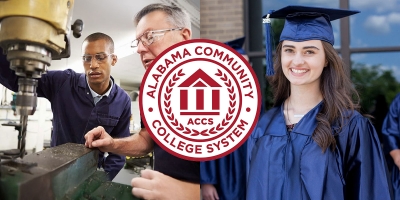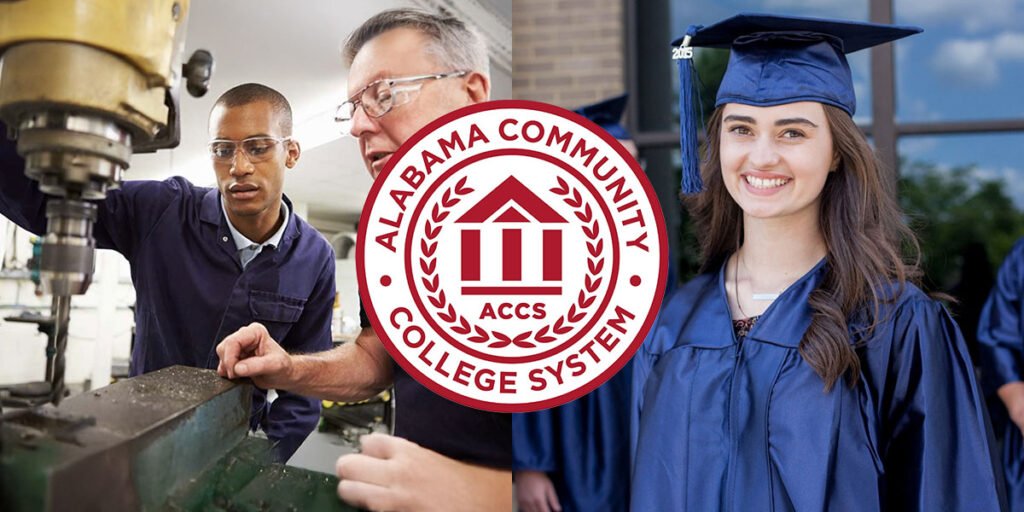
Students in Alabama are flocking to community colleges, whether they’re fresh out of high school or adults looking to pivot in their careers. The Alabama Community College System (ACCS) provides a diverse array of educational opportunities tailored to fit different needs.
With 24 campuses and over 130 locations statewide, ACCS delivers accessible, affordable programs that benefit a wide range of learners. Whether you’re gearing up to enter the job market, aiming to enhance your skills, or looking to complete a degree, there’s a suitable path for you.
One of the initial choices students often face is whether to enroll in credit or non-credit courses. Both paths offer valuable opportunities but cater to different objectives and time commitments.
Decide What’s Right for You
Understanding the frameworks of credit and non-credit courses is vital in making your decision. Dr. Natalie Thornton, who oversees career and technical education, clarifies this distinction. “The primary difference lies in time commitment,” she notes. Non-credit courses tend to be shorter and more straightforward, ideal for quick skill enhancement.
On the other hand, credit courses adhere to a semester-based structure and require a set number of instructional hours, even if they are offered in a compressed format. To put it simply: credit courses contribute to formal academic qualifications such as certificates and degrees, while non-credit courses focus on practical skills for specific jobs, often leading to industry-recognized certifications without the long-term classroom obligations.
Non-Credit: Fast, Focused, Career-Ready
Non-credit programs provide quicker learning avenues tailored for those eager to enter the workforce quickly. While these courses don’t apply toward degree requirements, they equip students with hands-on training in high-demand sectors like manufacturing, healthcare, hospitality, construction, and fiber optics. Many culminate in certifications that enhance job prospects.
Julie Frizzell from the ACCS Innovation Center highlights that these programs cater to individuals in fields where a two- or four-year college degree isn’t mandatory. “The aim is to offer accessible, focused training that prepares people for better-paying jobs and a new career path,” she explains. These programs are designed to be swift, adaptable, consistent across the state, and aimed at providing clear pathways for individuals.
An excellent example is the Skills for Success program, which provides free, short-term training aligned with employer needs. Houston Blackwood, the workforce director at ACCS Innovation Center, points out that popular certifications include CDL Class A, CDL Class B, and fiber optic technician roles. Notably, the fiber optic program has garnered over 1,300 industry accreditations within three years.
Frizzell stresses the significance of non-credit programs. “Non-credit training is invaluable and can lead to higher-paying positions compared to some jobs requiring a degree,” she states. Programs like those for motor grader operators and fiber optic engineers prepare individuals for crucial roles sustaining community operations, offering solid wages, stability, and purpose.
For many people in Alabama, non-credit options serve as stepping stones to further educational aspirations, creating clear paths to employment, independence, and fulfilling job prospects.
Credits: Structured, Stackable, and Degree-Focused
Credit courses through ACCS provide a well-rounded and flexible approach for long-term achievement. With a network of 24 institutions and over 130 locations, ACCS enables students to begin their education thoughtfully, whether they’re fresh high school graduates, full-time workers, or returning learners. The system is designed to accommodate real-life situations and offers online options to fit any schedule.
The credit program follows a traditional academic path leading to certificates, associate degrees, and seamless transfers to four-year universities. Students can either start or finish the initial portion of their bachelor’s degree affordably, helping them save money.
Moreover, many choose credit programs geared towards specific careers. With 288 various options spanning healthcare, business, manufacturing, education, and technology, Alabama community colleges cater to everyone. Whether you’re preparing for university or seeking technical training, ACCS is positioned to offer a smart start.
These programs are designed to be stackable, allowing students to begin with short-term certificates and progressively advance. Additionally, ACCS provides high-quality education from experienced instructors at a fraction of the cost of four-year institutions, enabling students to graduate more quickly and with less debt.
If you’re aiming to become a registered nurse, cybersecurity expert, educator, or entrepreneur, Alabama’s Community College credit programs offer the structure and support necessary for success. By focusing on class size, flexible options, and academic excellence, ACCS delivers practical education tailored to your needs.
Whether you’re looking to switch careers rapidly or pursue a university degree, Alabama community colleges have a pathway designed with your goals in focus. Non-credit programs provide quick skills training, while credit-backed programs build a strong academic base for long-term careers. Both approaches are affordable and geared towards tangible outcomes.
At ACCS, there’s something suitable for every learner, every schedule, and every future.
For more information, please see www.alabama.edu. Explore free short-term training opportunities Skills for success.
















